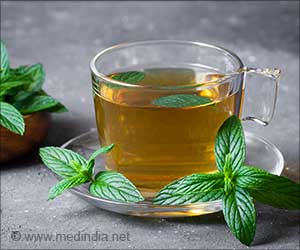Winter dehydration isn’t a myth; it’s a genuine concern where the body grapples with insufficient water levels during the colder months. Contrary to the common belief that dehydration is reserved for sweaty summers, the winter season presents its challenges. Reduced thirst perception, dry air, and indoor heating collectively contribute to this seasonal dehydration (1). Even warm caffeinated beverages, often sought for comfort in the cold, can exacerbate the issue.
The symptoms of winter dehydration may start subtly, with increased thirst, dry skin, headaches, and fatigue – often dismissed as typical winter discomfort. However, if ignored, these mild signs can escalate to severe complications such as urinary tract infections, kidney stones, and compromised immune function. Recognizing the risks is crucial for taking proactive steps to stay adequately hydrated during winter.
Keeping a water bottle within arm’s reach serves as a constant reminder to sip water regularly. Consistent hydration is key to maintaining bodily functions, transporting nutrients, and regulating temperature, even when the winter cold diminishes thirst cues. Setting alarms or reminders can be an effective strategy.
Tea-totaler’s Trick
Caffeine and alcohol, popular choices during winter, contribute to increased urine production, potentially worsening dehydration. Swapping these beverages for water, herbal tea, or green tea helps counteract their dehydrating effects. Opt for warm, hydrating alternatives.
Advertisement
Fruity Frost Fix
Integrate water-rich fruits and vegetables like cucumbers, oranges, and tomatoes into your winter diet. These not only offer essential vitamins and minerals but also contribute significantly to your water intake. The American Heart Association recommends these hydrating foods to supplement fluid intake during the dry winter months.
Moisture Master
Combat dry indoor air caused by heating systems by using a humidifier at home. Maintaining proper humidity levels, as suggested by the Centers for Disease Control and Prevention (CDC), supports nasal and respiratory health, minimizing moisture loss from the body during winter.
Layer, but Hydrate
Cold air has a knack for depleting moisture through respiration, skin, and exhalation. While bundling up in layers is essential for warmth, it’s equally crucial to continue hydrating to counteract the body’s natural moisture loss during winter.
Soup-er Sip Solution
Embrace the joy of piping hot broths and soups during winter. Not only do these liquids offer warmth, but their high water content contributes to overall hydration. Dietitians and healthcare professionals recommend these comforting options for both hydration and nutrition, countering fluid loss in the body during chilly winter days.
As winter wraps its icy tendrils around us, let’s not forget the vital role hydration plays in our overall well-being. Winter dehydration may not scream for attention like the summer heat, but its impact on health is undeniable. By incorporating these preventive measures into our daily lives, we can navigate the chill with health and hydration, ensuring that winter becomes a season of comfort and well-being. So, let the gloves stay on, but the water glass should always be within reach!
References:
- The Importance of Winter Hydration
https:www.massgeneral.org/news/article/the-importance-of-winter-hydration#:~:text=As%20temperatures%20drop%20it%20can,enough%20fluid%20to%20function%20properly.
Source: Medindia



